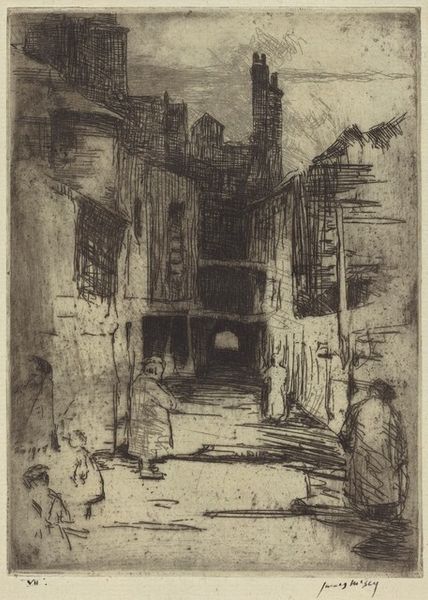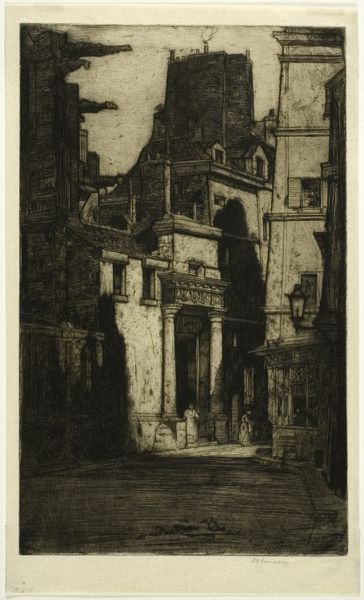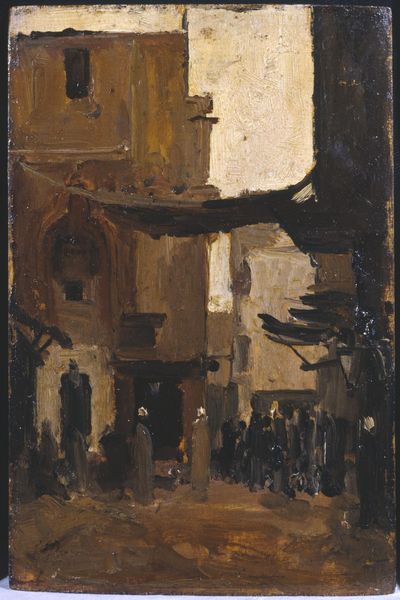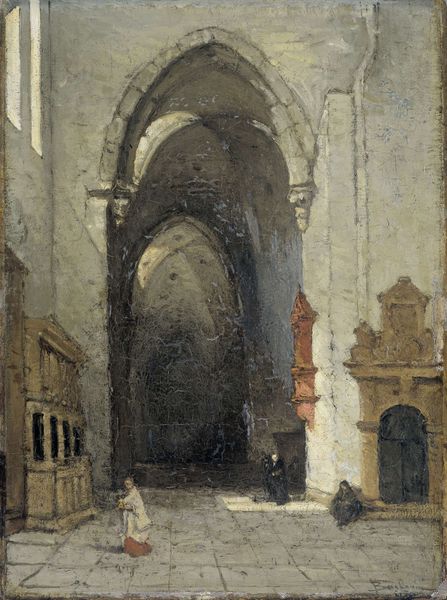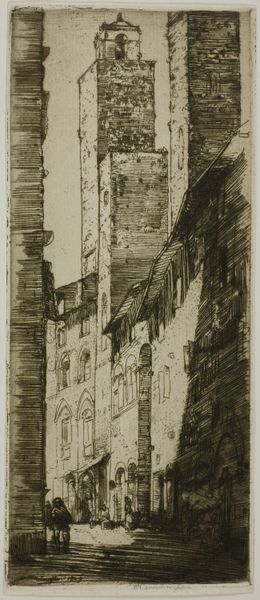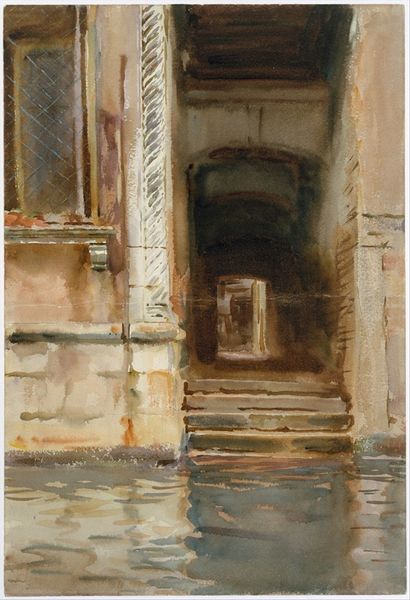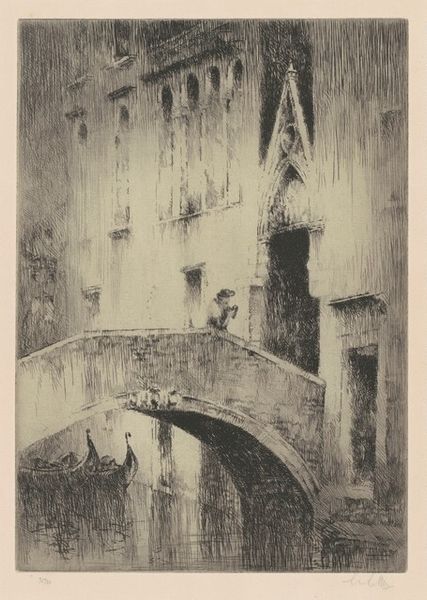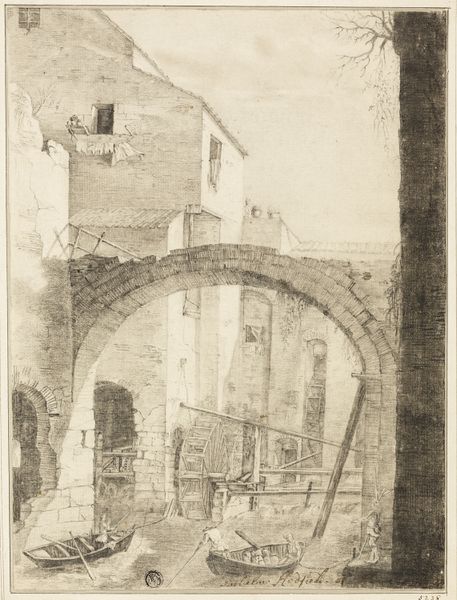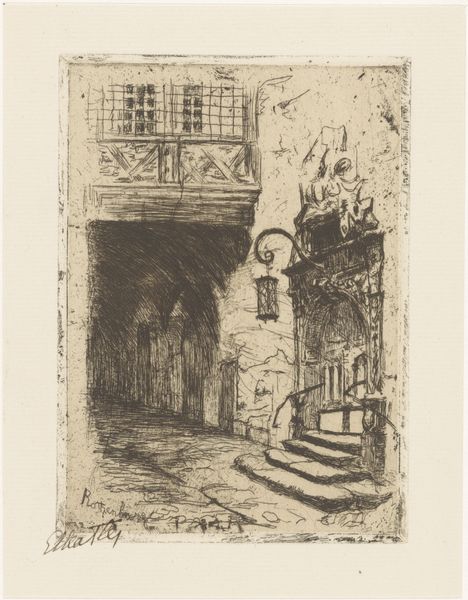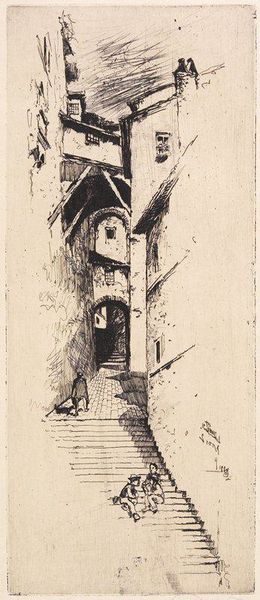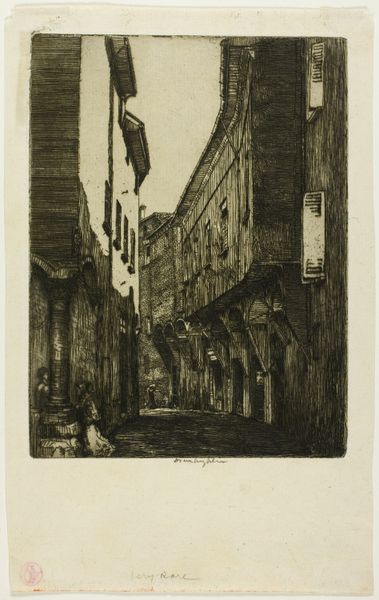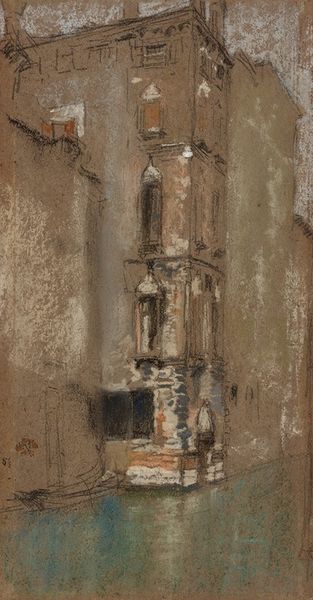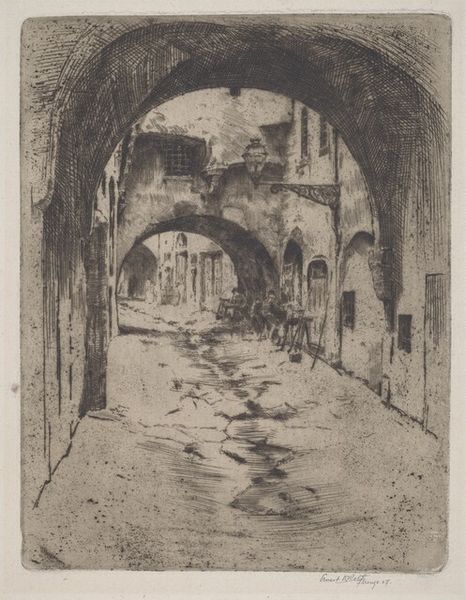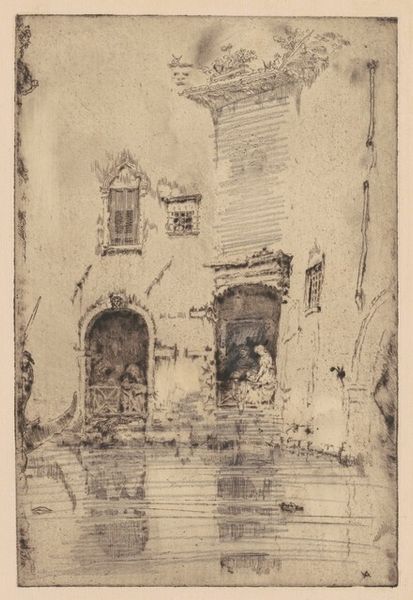
Copyright: Public Domain: Artvee
Curator: Here we have James Abbott McNeill Whistler’s "The Staircase; Note in Red" created around 1880. It's a mixed-media piece using watercolor and pencil, a combination characteristic of his approach. Editor: Hmm, a faded postcard from a dream. The red staircase really pops, almost theatrical, like a stage set waiting for a performance that never begins. Curator: Precisely. This is part of Whistler's Venetian series, a group of works where he captured the essence of Venice through a muted, impressionistic lens. We can explore this further by considering the socio-economic context that influenced these works. Venice, despite its rich history, was facing decline at this time, and Whistler focuses not on grand vistas, but on these intimate, somewhat melancholic corners. It could be said it speaks to the disenfranchised residents, through his rendering. Editor: Melancholy, yes! But there's also something enchanting. Like finding a secret world tucked away, that little walled garden, the cat perched on the wall. I like to imagine a quiet life there, a world separate from the bustling main canals. I want to know what those little arches underneath hide and, moreover, what adventures occur up the stairs. Curator: It's fascinating how the limited color palette—the predominantly reds and grays—creates this sense of almost being outside of time. This work can be read as a document of space but, importantly, also as an emotional experience that encapsulates ideas related to the city's state in this era. Consider Ruskin’s critique and Whistler's fight to defend his artistic vision against charges of merely “sketching”. Editor: Oh, the drama of it all! Whistler really makes the medium speak for itself, I feel. He allows the watercolor to pool and blend, almost like a memory that's fading. This space doesn't offer solutions, it proposes endless meandering reflection. Curator: It’s true, "The Staircase" certainly holds complexities in its depiction of place. Thinking about its broader themes in terms of urban decay, aesthetics and the individual allows for reflection. It makes one ponder about progress and its cost. Editor: Makes you think twice about those romantic postcards!
Comments
No comments
Be the first to comment and join the conversation on the ultimate creative platform.
